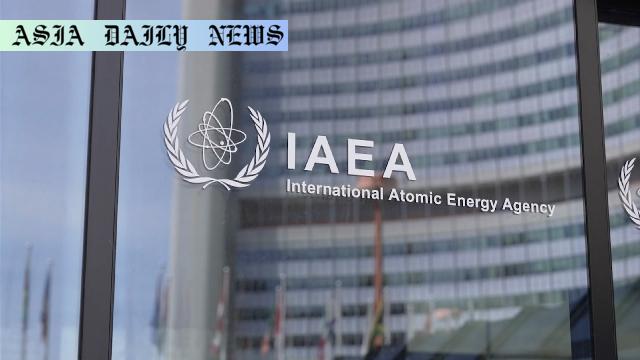IAEA – Iran agrees to host technical team soon amid nuclear talks.
Iran will welcome an International Atomic Energy Agency (IAEA) technical team soon to discuss collaboration.
The move comes after Iran suspended IAEA cooperation due to Israeli and US strikes on nuclear facilities.
Tehran aims to reassure nations about the peaceful purpose of its nuclear program.

Iran Agrees to Host IAEA Technical Team Amid Nuclear Tensions
The Iranian government has confirmed its decision to welcome a technical delegation from the International Atomic Energy Agency (IAEA) within the next two to three weeks. This development follows a period of heightened tensions in Iran’s interactions with the agency due to alleged Israeli and US attacks on its nuclear facilities. Tehran has openly accused the IAEA of serving as a cover for these attacks, leading to the suspension of cooperation with the UN nuclear watchdog in previous weeks.
This announcement coincides with Iran’s upcoming negotiations with Britain, France, and Germany, aimed at addressing long-standing disputes over its nuclear agenda. These deputy-level minister talks are set to take place on Friday, signaling a potential pivot toward dialogue and consensus-building amid international concerns over Iran’s nuclear intentions.
Regional Dynamics and Resumption of IAEA Dialogue
Deputy Foreign Minister Kazem Gharibabadi emphasized Iran’s readiness to engage with the IAEA, hinting at a potentially positive shift in the country’s diplomatic strategies. By showcasing efforts toward transparency and collaboration, Iran appears to be addressing global skepticism about the peaceful objectives of its nuclear program. Such actions gain significance in light of Foreign Minister Abbas Araghchi’s recent remarks that Tehran may be willing to resume indirect talks with the United States.
The departure of IAEA inspectors from Iran earlier this year provoked international criticism, with several watchdogs warning of the potential challenges in monitoring Iran’s nuclear program. The return of an IAEA technical team may help to restore efforts for effective oversight and reduce tensions surrounding nuclear proliferation concerns.
Implications of Renewed Engagement with Western Nations
Iran’s decision to host the IAEA delegation also aligns with its broader strategy of negotiating with Western powers. Reports suggest that this cooperation could pave the way for renewed discussions with Britain, France, and Germany, creating a possible pathway for reinitiating stalled agreements such as the Joint Comprehensive Plan of Action (JCPOA). Iran’s willingness to engage with the IAEA could serve as an overture to these discussions, potentially rebuilding trust between Tehran and its international counterparts.
Furthermore, Iran’s diplomatic gestures come amid its deteriorating relationship with Israel and the US. Tehran’s decision to cooperate with the IAEA could be interpreted as an attempt to sideline aggressive rhetoric while presenting its nuclear ambitions as peaceful. This calculated move will likely influence the outcomes of future negotiations and global perceptions of Iran’s intentions.
The Path Forward for Iran and Global Diplomacy
While the announcement holds promising implications for cooperation, it also underscores the fragile state of global nuclear diplomacy. The expanding scope of Iran’s nuclear program has drawn critical attention, which the country’s leadership seeks to mitigate by proactively engaging with key stakeholders. In doing so, Iran may aim to safeguard its interests on the global stage while addressing pressing international concerns about nuclear weaponization.
As the IAEA team prepares to travel to Iran, the international community will closely observe whether this trip translates into substantive progress in the country’s nuclear compliance and transparency. Simultaneously, Western allies are expected to push for stricter terms and monitoring mechanisms to ensure accountability under international accords. This interplay of diplomacy, negotiation, and technical collaboration could set the tone for the future of nuclear cooperation between Iran and the world.
Commentary
Major Implications of Iran’s Decision to Re-Engage
Iran’s announcement to cooperate with the International Atomic Energy Agency (IAEA) marks a strategic pivot that could have far-reaching implications for both the nation and the global community. After weeks of international isolation following the suspension of its collaboration with the IAEA, this move suggests an effort by Tehran to re-enter the diplomatic fold. As Iran prepares to host a technical team, the political undertones extend beyond mere transparency efforts; the gesture reflects a calculated attempt to influence upcoming nuclear talks at the international level.
A Calculated Diplomatic Move
One cannot overlook the strategic timing of Iran’s decision. With deputy-level discussions scheduled with Britain, France, and Germany on Friday, Tehran appears to be aligning its diplomatic cards to re-establish trust and signal its openness to constructive dialogue. For observers, this decision seems to serve multiple avenues: placating international concerns, responding to growing criticism after earlier inspector removals, and signaling Iran’s readiness to engage in meaningful nuclear negotiations.
Global Diplomacy: Balancing Trust and Skepticism
However, the road forward remains fraught with skepticism. Can a technical team visit by the IAEA effectively dispel doubts surrounding Iran’s nuclear ambitions? While the move can mark a stepping stone toward common ground, questions about the transparency of Iran’s nuclear programs remain prevalent globally. Critics argue that true collaboration must extend beyond symbolic gestures, requiring Iran to allow unfettered inspections and provide credible evidence to deem its nuclear ambitions peaceful.
In conclusion, Iran’s renewed engagement with the IAEA is undeniably a positive development. Yet, much will depend on the substance of this cooperation—how the technical team’s visit unfolds and whether it catalyzes broader agreements with Western nations. By strengthening its ties with international bodies like the IAEA, Tehran has the opportunity to rebuild trust and advance diplomatic agendas for peace and collaboration. However, skepticism will only subside with tangible, transparent outcomes over the months to come.


